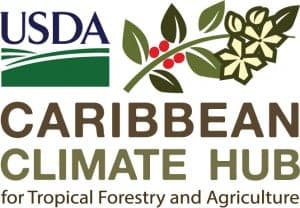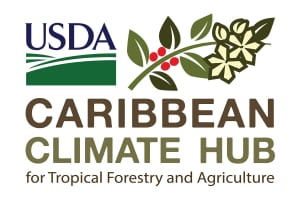FAQs
What is climate?
The term ‘climate’ refers to the larger, more long-term systems in which weather takes place. Describing the climate of a place includes things like temperature, precipitation and wind averaged out over a period of time (usually 30 years).
Climate is measured using statistical means and averages and is often discussed in terms of long-term regional patterns, such as ‘warming trends in the Arctic.’ Weather, on the other hand, is usually talked about in terms of events that are much more localized and short term.
Variations in local weather can often cause confusion about the overall state of the climate. For instance, Los Angeles recently experienced several days of heavy rain that resulted in localized flooding, however, if one looks at the region of Southern California over the last thirty years, one can clearly see a severe decline in average precipitation. The flooding, in this case, would be an example of an ‘extreme weather event,’ while the overall trend of warming and drying reflects the state of the climate.
What is ‘climate change’?
Following the definitions above, ‘climate change’ refers to long-term changes in the average value of weather variables such as rainfall or temperature.
Over its history, the earth’s climate has always been changing. Things like volcanic eruptions and solar variation have interacted over extremely long periods and led to certain periods on earth being warmer (such as the one we are in now), while in other periods much of the earth’s surface has been covered in ice. Today, when most people talk about climate change they are refer specifically to ‘human-induced climate change’.
By studying ancient air samples that are trapped deep within the ice caps, scientist have been able to track concentrations of Greenhouse Gases in earth’s atmosphere over many centuries. Greenhouse gases act just like a greenhouse by letting energy from the sun enter, but not allowing some of it to escape by radiating back into space.
Since the industrial revolution, humans have dramatically increased earth’s greenhouse gases through activities ranging from energy production to agriculture. This increase is having an effect on the global weather averages and thus many people are concerned about climate change.
What is ‘climate variability’?
‘Climate variability’ refers to deviations from the average climate of a region that may or may not reflect longer-term trends. Scientist measure weather conditions over 30 year periods in order to establish average weather conditions and track climate trends for a given area. However, any given day, season, or year can vary widely from these overall averages in terms of temperature, precipitation, or other indicators.
It is even possible for areas to experience several consecutive years in which longer-term trends may seem to be changing (i.e. wetter years in the midst of a long-term drying trend, or cooler years during an overall warming period.) These variations can be caused by natural occurrences such as El Niño and La Niña patterns in the Pacific Ocean that have a profound effect on weather throughout North America and the Caribbean.
Many places experience a wide range of variations within local weather patterns that can make understanding the overall climate difficult without examining long-term weather data. Statistically analyzing weather data over 30 year periods allows scientists to establish averages that are not influenced by day-to-day, or year-to-year climate variability.
Who are ‘climate scientists’ and what do they do?
‘Climate scientist’ can refer to any person who uses the scientific method and instruments to experiment, measure, and record long-term weather data. These people could be atmospheric chemists who study how various chemical molecules interact in our atmosphere, or climatologists, who study long-term trends in weather and the many factors that affect them.
Climate scientists may work for public and/or private universities, government agencies, or even private companies.
What are expected climate change effects in the Caribbean?
Climate scientists have developed complex models predicting that the Caribbean will continue to experience increasing temperatures, rising sea levels, shifting rainfall patterns, and more intense tropical storms and hurricanes as a result of global climate change.
How does all this affect agriculture in the Caribbean?
These changes threaten agriculture in the region in many different ways;
- shifting rainfall patterns are already producing prolonged droughts that can make costly irrigation necessary for more farmers,
- increasing temperatures can affect growing seasons and combine with drought to stress crops and decrease yields,
- more intense tropical storms and hurricanes can lead to damaged infrastructure, crops, and topsoil loss.
- presents a threat to food security on the islands
- increasing temperature can enable pests, disease, and invasive species that affect livestock, wildlife and plants
- sea level rise will affect coastal populations and prime agricultural lands.
- space for growth and migration on the islands is limited
- a majority of farms do not have the capacity or access to specialized expertise, information, research or equipment to adapt to climate change.
What can I do?
In order to address and prepare for the challenges climate change poses to agriculture, the USDA is encouraging farmers to become part of their local Climate Hub network.
The Hubs are working to connect farmers and agricultural advisors with the right people, tools, science, and information that they need to adapt to a changing world. Here in the Caribbean, we working with local extension services, the Department of Agriculture, the NRCS, and others to help develop and deliver tools that will help improve yields and bolster resilience in the face of our common challenges. We can’t do this without you!
Please contact us at caribbeanclimatehub@gmail.com, let us know:
- Who you are and what types of crops you are cultivating
- What are the most serious challenges you are facing
- What sources do you rely on for information and advice
- How can we best help you prepare for a changing climate?


Síguenos!